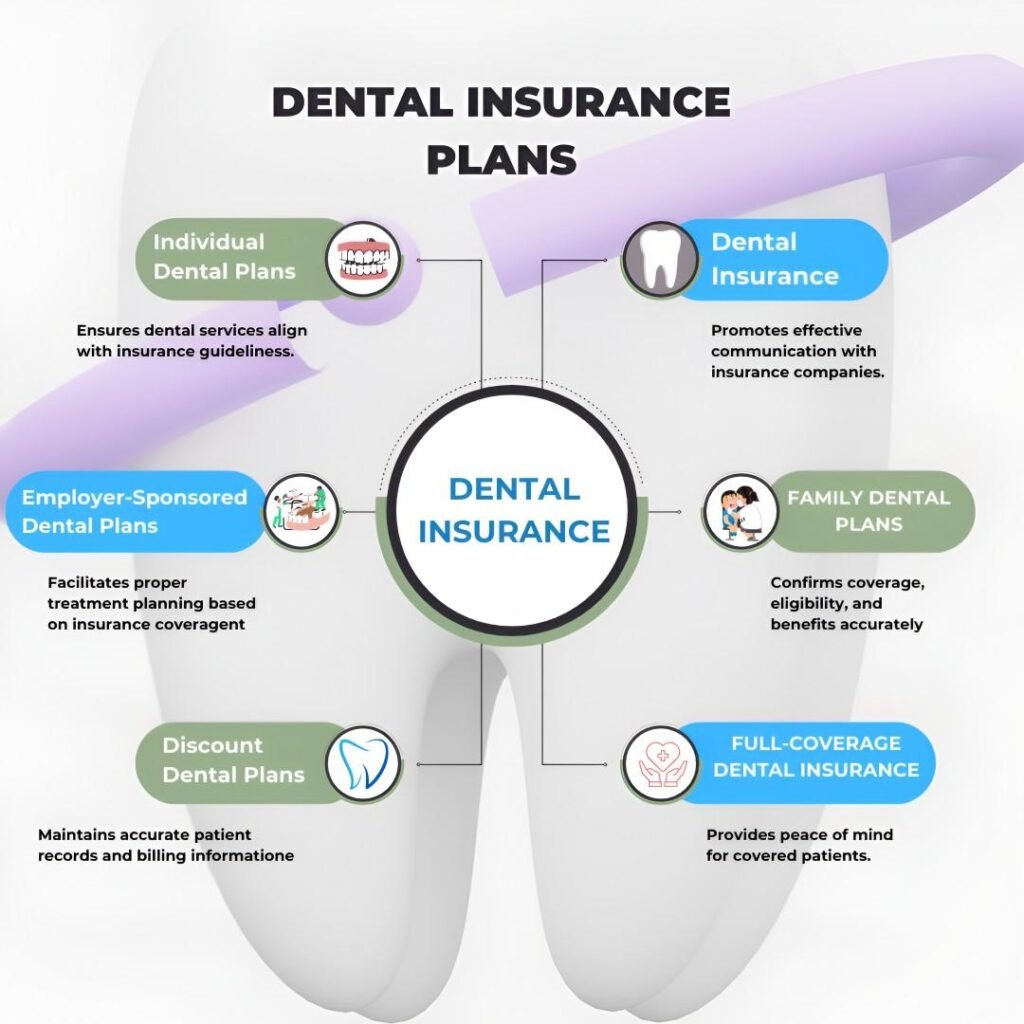
Choosing the best life dental insurance can feel overwhelming, especially when multiple plans, terms, and providers compete for attention. For many individuals and families, dental health is closely linked to overall wellness, and pairing it with life coverage adds another level of security. Whether you are a professional analyzing insurance options for clients, or an individual planning long-term financial safety, making the best decision requires clarity, patience, and a structured approach.
This piece breaks down the important elements you need to consider before selecting a plan. From cost and benefits to provider networks and hidden exclusions, every detail counts when your health and finances are on the line.
Why Life Dental Insurance Matters
Dental care is one of the most neglected parts of personal health insurance. While people often carry health and life insurance, dental needs tend to be addressed later, sometimes only when a problem arises. This delay can lead to high costs for treatments like root canals, implants, or orthodontics.
Pairing dental coverage with life insurance is increasingly popular for three reasons:
- Convenience – Having both in one plan can simplify billing and management.
- Financial Protection – Unexpected dental procedures can be expensive, coverage keeps costs manageable.
- Peace of Mind – If you take dental insurance, then families can rely on protection for both health and long-term security.
The best plan ensures that oral health is not treated as an afterthought but as an important part of overall well-being.
Key Things to Compare Before Choosing a Policy
When you compare different plans, keep these points in mind:
- Coverage details – Check if the plan includes preventive care like cleanings and exams, basic treatments such as fillings, and major services like root canals, crowns, or dentures. If you or your family need orthodontics, see if braces are included.
- Costs – Look beyond monthly premiums. Check deductibles, co-pays, and yearly limits. Sometimes a plan with lower monthly cost can end up being more expensive in the long run if it covers less.
- Dentist network – Some plans allow you to visit only specific dentists, while others give more freedom. Make sure your preferred dentist or clinic is included. You check every point deeply.
- Waiting period – Many plans ask you to wait a few months before you can use benefits for major treatments. If you need care soon, this becomes very important.
- Life insurance benefits – Look at the amount of coverage, whether premiums are stable, and if you can increase coverage later without extra conditions.
Common Types of Dental Insurance
Understanding plan types makes comparison easier. The most common include:
- Dental Health Maintenance Organization (DHMO): Lower premiums, limited provider choice, usually no deductibles.
- Preferred Provider Organization (PPO): Higher flexibility with provider choice, broader coverage, higher premiums.
- Indemnity Plans: Freedom to choose any dentist but often come with higher costs and paperwork.
Each has advantages depending on your priorities—cost, flexibility, or provider access.
Steps to Choose the Best Dental Plan

The best way to choose a plan is to go step by step. First, think about your needs. Do you expect major dental work soon? Do your children need braces? How much life insurance would your family need if something happened to you?
Next, compare different providers. Don’t stop at the first option. Look at how much they cover, how much they pay for each treatment, and what people say about their services.
After that, check the long-term costs. A plan should not only be affordable now but also remain useful in the future. Always read the fine print and look for exclusions, limits, or hidden charges. If needed, speak with an insurance expert who can explain the terms clearly.
Mistakes to Avoid
Many people choose a plan based only on the lowest price. That often means very little coverage. Others ignore the provider network and later find their dentist is not included. Some people don’t pay attention to preventive care, which is important for avoiding bigger issues. Another mistake is focusing only on dental benefits and forgetting to review the life insurance part, which leaves gaps in family protection.
- Choosing Based on Price Alone
- Ignoring Network Restrictions
- Skipping Preventive Care Benefits
- Not Checking the Life Insurance Side
Who Benefits the Most from Life Dental Insurance?
- Families with children: Orthodontic coverage can save thousands.
- Professionals: A reliable plan prevents interruptions from untreated dental issues.
- Seniors: Coverage reduces the personal costs for dentures, implants, and restorative care.
- Self-employed individuals: A combined plan provides protection without employer benefits.
Trends in Life Dental Insurance
More people are looking for plans that combine different types of coverage. Insurance companies are adding flexibility, making it easier to compare online, and focusing more on preventive care. This shift shows that people want value and convenience together.
While the insurance industry evolves, some trends stand out:
- Increasing demand for plans that combine multiple benefits.
- More flexibility in network and provider choice.
- Digital platforms make plan comparison and claims easier.
- Growing focus on preventive care and wellness benefits.
These shifts show that consumers want convenience and value without sacrificing quality.
Who Benefits the Most from Life Dental Insurance
This type of insurance can be valuable for many groups:
- Families with children benefit from orthodontic coverage and long-term financial security.
- Working professionals need reliable coverage to avoid interruptions from unexpected dental bills.
- Seniors often require restorative treatments like implants or dentures, making dental coverage essential.
- Self-employed individuals without employer benefits can find great value in combined plans.
In short, anyone who wants both health protection and family security in one policy can benefit.
The Role of Preventive Dental Care in Saving Costs
One of the most underrated benefits of a strong dental plan is preventive coverage. Professional cleanings, exams, and early diagnostics reduce the risk of expensive treatments later. When paired with life coverage, it creates a complete safety net and protects both immediate health and future security.
When this is combined with life coverage, it creates a complete safety net, taking care of your present needs and your family’s future at the same time.
Look Into an Personal Dental Insurance Policy
Individual insurance is more expensive than group policies, whether you buy one for yourself or your entire family, and this coverage has limitations. Insured parties frequently have to wait before important procedures are approved.
If you choose to sign up for a plan just in time for implants or a new set of dentures, your surgery may not be covered. Insurers typically impose a waiting period before you can begin enjoying specific benefits, which can run anywhere from a few months to a year or more, depending on the treatment. There are other plans with no waiting periods, but they usually have relatively low coverage limits in the first year.
Before making a decision, it’s beneficial to compare prices. Get price quotes and policy details from insurance company websites, or talk with an experienced insurance agent.
Questions to Ask Before Choosing a Plan
- What services are fully covered without extra cost?
- Are there annual or lifetime limits for dental care?
- Does the plan include coverage for orthodontics?
- How much will I pay if I use an out-of-network provider?
- Can life coverage be increased later without a full medical exam?
Balancing Life and Dental Needs
The best life dental insurance is not simply about dental cleanings or coverage amounts. It is about creating harmony between everyday healthcare and long-term financial safety. A plan that balances both ensures you are not overpaying for services while still protecting your loved ones.
Final Thoughts
Choosing the best life dental insurance requires more than comparing prices—it involves careful evaluation of coverage, provider networks, long-term affordability, and life protection benefits. A well-selected plan not only saves money but also secures both your health and your family’s future.
Our mission is to explain complex topics in simple terms so that people and experts may make better decisions. With the right plan, you not only get financial security but also peace of mind knowing that your health and your family’s future are secure.
